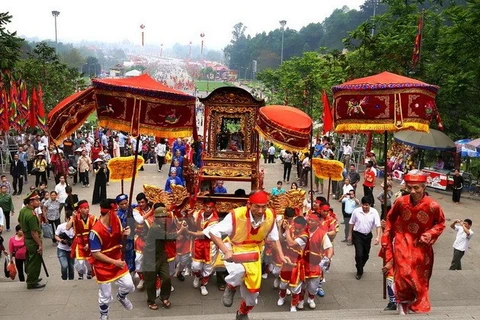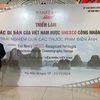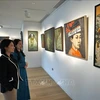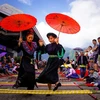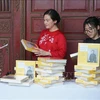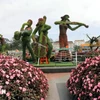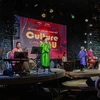Phu Tho (VNA) – The northern province of Phu Tho on March 28 opened an exhibition to introduce documents and items related to the UNESCO-recognised intangible cultural heritage of Phu Tho’s Xoan singing, as part of activities to celebrate the Hung Kings’ Temple Festival 2017.
The exhibition covers 300 square metres at Lai Len temple whose second phase of restoration was inaugurated the same day after 15 months of construction.
The temple, which has an area of 1.7 hectares in Kim Duc commune, Viet Tri city, also includes a stage for Xoan singing performance, contributing to the restoration and promotion of the folk musical art.
The exhibition covers 300 square metres at Lai Len temple whose second phase of restoration was inaugurated the same day after 15 months of construction.
The temple, which has an area of 1.7 hectares in Kim Duc commune, Viet Tri city, also includes a stage for Xoan singing performance, contributing to the restoration and promotion of the folk musical art.
In the coming time, the provincial Department of Culture, Sports and Tourism will hand over the temple to Kim Duc commune for management, while encouraging local Xoan singing bands to enhance operational quality, thus making Lai Len temple an attractive tourist destination of Viet Tri.
Also on March 28, Phu Tho also announced the launch of “City tour Viet Tri”, a special tourism product offered during the Hung Kings’ Temple Festival 2017, which will take place from April 1-6.
The worshipping rituals of the Hung Kings are closely related to the ancestral worship traditions of most Vietnamese families, an important part of people's spiritual lives. It was recognised as UNESCO Intangible Cultural Heritage of Humanity in 2012./.
Also on March 28, Phu Tho also announced the launch of “City tour Viet Tri”, a special tourism product offered during the Hung Kings’ Temple Festival 2017, which will take place from April 1-6.
The worshipping rituals of the Hung Kings are closely related to the ancestral worship traditions of most Vietnamese families, an important part of people's spiritual lives. It was recognised as UNESCO Intangible Cultural Heritage of Humanity in 2012./.
VNA




